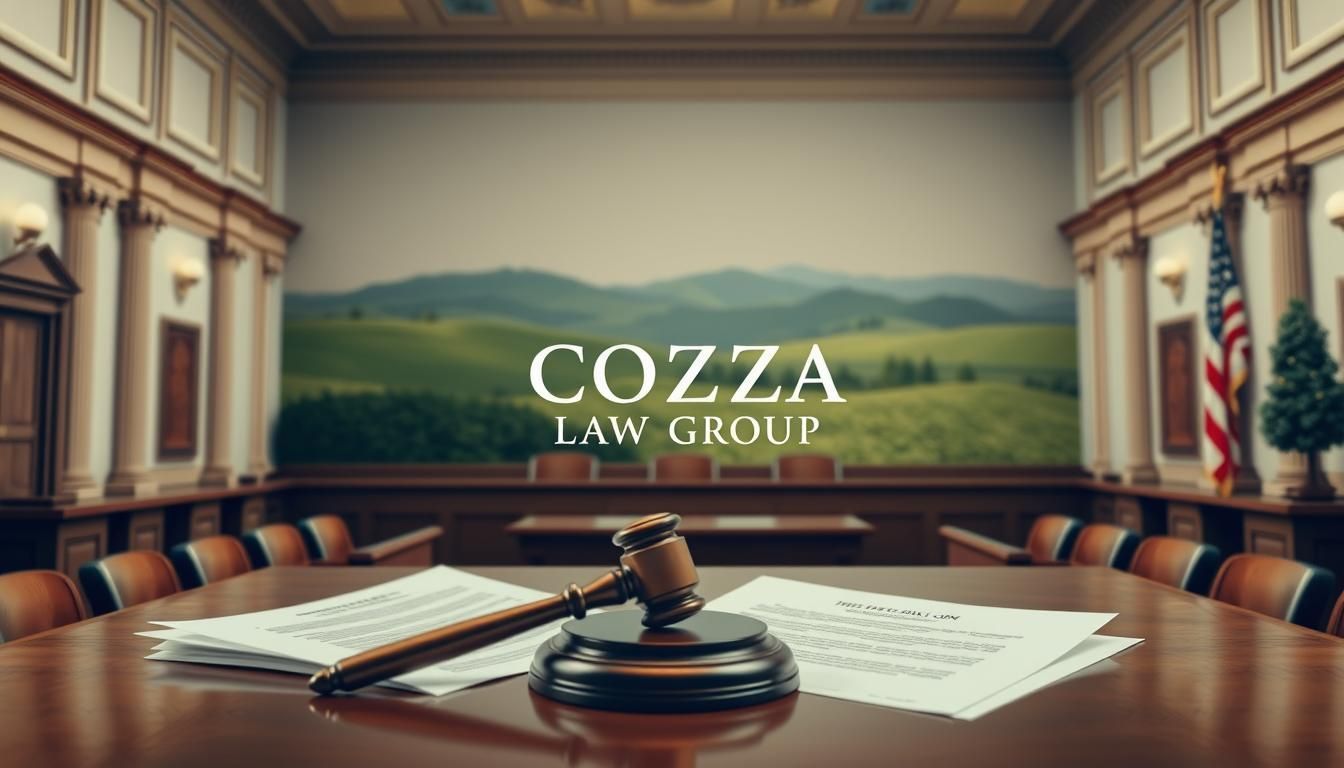What Are The Types of Trust in Pennsylvania: A Comprehensive Guide

Trust management is key in estate planning and protecting assets in Pennsylvania. We'll look at the different types of trusts available and their benefits. Each type, from revocable living trusts to charitable trusts, has its own perks for keeping wealth safe and planning taxes.
In Pennsylvania, the Uniform Trust Act sets the rules for trusts. This act helps in creating and managing trusts. Costs for these trusts range from $1,500 to $3,000, making them a smart choice for cutting down on estate and inheritance taxes.
This guide goes deep into the details of trust types, like special needs trusts and qualified personal residence trusts (QPRTs). We'll see how these tools can safeguard assets, help loved ones, and build lasting legacies. Let's explore the world of trusts in Pennsylvania together.
Understanding Trusts in Pennsylvania
In Pennsylvania, trusts are key in estate planning and managing assets. We'll look into what trusts are, their legal setup, and the roles of those involved.
Definition and Purpose of Trusts
A trust is a legal setup where one person holds and manages assets for another. In Pennsylvania, trusts have many uses:
- Asset protection
- Tax planning
- Charitable giving
- Providing for individuals with special needs
Legal Framework: Pennsylvania Uniform Trust Act
The pennsylvania uniform trust act rules trusts in the state. This act sets up rules for making, managing, and changing trusts. It makes sure trusts are handled the same way everywhere in Pennsylvania.
Role of Trustees and Beneficiaries
Trustee responsibilities include managing trust assets, making payments, and following the trust's rules. They must act for the good of the beneficiaries, keeping a high level of trust. Beneficiary rights mean getting payments, seeing trust info, and making trustees answer for their actions.
Trusts in Pennsylvania give flexibility and safety for managing assets. Knowing the legal setup and roles is key for good trust planning and management.
Types of Trust in Pennsylvania
In Pennsylvania, we have many trust options for estate planning. Our state's simple probate laws make trusts less common. But, they still have unique benefits. Let's look at the main types of trusts available in Pennsylvania.
Revocable Living Trusts
Revocable living trusts in PA are a favorite among estate planners. They let you keep control of your assets while you're alive. If you move all your assets into the trust before you pass away, you can skip probate. This trust is flexible, meaning you can change or cancel it anytime.
Irrevocable Trusts
Irrevocable trusts Pennsylvania are not as common but they have big benefits. They help with taxes and protect your assets from creditors. Once made, these trusts can't be easily changed. It's important to pick an independent trustee to manage it right and follow the rules.
Charitable Trusts
Charitable trusts PA let you support causes you love and might get tax breaks. There are two main kinds: charitable lead trusts and charitable remainder trusts. They help you meet your giving goals and plan for your family's finances.
Special Needs Trusts
These trusts help take care of people with disabilities without affecting their government benefits. They're key for families planning for the future of loved ones with special needs.
Qualified Personal Residence Trusts
QPRTs take your home's value out of your estate, which could lower estate taxes. This trust is great for those with valuable homes wanting to cut down on estate taxes.
Other trusts in Pennsylvania include bypass trusts for married couples and life insurance trusts. Each one meets different estate planning needs. They offer various levels of control, protection, and tax benefits.
Benefits of Establishing a Trust in Pennsylvania
Trusts bring many benefits to people living in Pennsylvania. They help with more than just passing on assets. Asset protection trusts in PA keep your wealth safe from creditors. This is very important in our society where lawsuits are common.
There are big tax benefits to using trusts in PA. By putting assets in certain trusts, you might lower estate taxes. This means more of your wealth can go to your loved ones. Trusts also keep your estate private, unlike wills which everyone can see.
Here are the main advantages of trusts in Pennsylvania:
- Avoid probate, saving time and money
- Maintain control over asset distribution
- Protect assets from creditors
- Reduce estate taxes
- Preserve eligibility for government benefits
- Ensure multi-generational wealth transfer
Trusts give you control in planning your estate. You can set rules for when and how assets are given out. For example, you might say a beneficiary must be a certain age before they get their inheritance. This isn't an option with a will.
It's a good idea to talk to estate planning lawyers who know about trusts. They can guide you in picking the best trust for your situation. This way, you can make sure the trust works well for you and your family.
Process of Creating a Trust in Pennsylvania
Creating a trust in PA has several important steps. We'll walk you through them to make setting up this legal tool easier to understand.
Choosing a Trustee
First, pick a trustee for your trust. This person or group will handle the trust's assets and give them out as you wish. Choose someone you fully trust, who is reliable and knows about money.
Identifying Beneficiaries
Then, figure out who will get something from your trust. This could be family, friends, or charities. Make sure to name your beneficiaries clearly to avoid any confusion later.
Drafting the Trust Document
Writing the trust document is key. This legal paper sets out your trust's rules, including:
- The trust's purpose
- Who the trustee and beneficiaries are
- How assets will be given out
- The trustee's powers
Funding the Trust
The last step is putting money into the trust. This means moving assets like houses, bank accounts, investments, or personal stuff into the trust's name. Remember, a trust only has control over what's put into it.
Creating a trust in PA can be tricky but it's a great way to plan for your future. Think about talking to a lawyer to make sure your trust fits your needs and follows Pennsylvania's laws.
Costs and Considerations for Setting Up a Trust
Setting up a trust in Pennsylvania comes with costs and things to think about. The cost to set up a trust can be between $1,500 and $3,000 for legal fees. This depends on how complex and what type of trust you're creating.
When you put a home in a trust in PA, you must change the property deed to the trust's name. This can affect property taxes and insurance, so check these out carefully.
There are ongoing costs too, like trust management fees. These fees are usually 1% or more of the trust's value each year. They pay for services from trustees, financial advisors, or estate planning lawyers.
- Legal fees for trust creation: $1,500 - $3,000
- Annual trust management fees: 1% or more of trust assets
- Additional costs: Tax preparation, asset retitling
Trusts have benefits but also need work. You must change the title of your assets to the trust's name to skip probate. This makes managing your money and properties a bit harder.
Think about the costs and benefits of a trust. Trusts help avoid probate and affect taxes. But, revocable living trusts in Pennsylvania don't give tax benefits or protect assets right away. For better protection, look into irrevocable trusts or other legal setups.
Trusts vs. Wills: Which is Better in Pennsylvania?
In Pennsylvania, choosing between trusts and wills depends on your specific needs. We'll look at the benefits of each and what to think about when deciding.
Advantages of Trusts
Trusts have many benefits for planning your estate:
- They help avoid probate, saving time and money.
- They keep trust details private.
- You can manage your assets while you're alive.
- They might offer tax benefits for big estates.
Advantages of Wills
Wills have their own benefits:
- They are simpler and cheaper to make.
- They let you name guardians for your kids.
- You can easily change or update them.
- They work well for smaller estates.
Factors to Consider When Choosing
Think about these when picking between a trust and a will:
- The size and complexity of your estate.
- Your privacy concerns.
- Your family situation, including minor children.
- Your long-term financial goals.
- If you want to avoid probate.
Both trusts and wills are important for estate planning. Trusts give you more control and privacy, but wills might be enough for simpler estates. It's a good idea to talk to an estate planning lawyer to find the best option for you.
Conclusion
We've looked at the many types of trusts in Pennsylvania. They are key for estate planning and protecting assets. From living trusts to special trusts like QPRTs, there's a trust for every need. It's important to work with a trust attorney in PA who knows the law well.
Planning your estate in Pennsylvania means thinking about your personal situation, financial goals, and legal rules. Trusts help protect wealth, reduce taxes, and make passing on assets easy. Knowing about the different trusts and when to use them helps you make smart choices for your assets and family.
In conclusion, trusts are essential for good estate planning. They help protect assets, take care of special needs, or support charities. The secret to successful estate planning in Pennsylvania is working with experts. Our can guide you through trust law and find the right solution for you.
Schedule a consultation with us today




